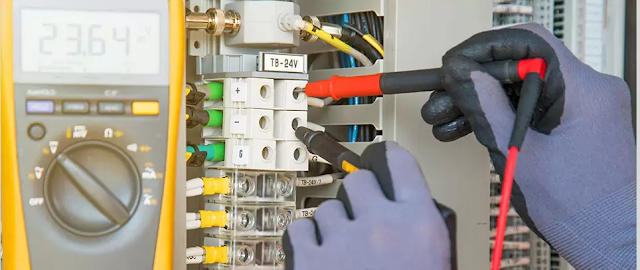VFDs in Industry - Why They're Important?
VFDs (Variable Frequency Drives) play a vital role in a spectrum of industrial applications. A VFD controls the speed of an AC motor by varying the frequency of the power supply. The main advantage of a VFD is that it can save energy by matching the speed of the motor to the load, thereby avoiding wastage.
VFDs are used in a wide range of industries and applications, such as pumps, fans, compressors, blowers, conveyors, and machine tools. Let's take a look at some of the ways in which VFDs are used across different industries:
Industry Application #1 - HVAC Systems
VFD Drives are widely used in HVAC systems to control the speed of fans and pumps. By matching the speed of these components to the required load, VFDs can help improve the overall efficiency of the system and reduce energy consumption. Additionally, VFDs can also help reduce noise levels by allowing fans and pumps to operate at lower speeds when required.
Industry Application #2 - Food & Beverage Processing
The food and beverage industry relies heavily on conveyor belts to move raw materials, finished products, and packaging around factories and warehouses. VFDs are used to control the speed of conveyor belts, ensuring that they operate at peak efficiency and do not overburden workers with excessive speeds. Additionally, VFDs can also help synchronize multiple conveyor belts so that they operate at the same speed, thereby reducing the risk of product damage or jams.

Industry Application #3 - Wastewater Treatment
Wastewater treatment plants use pumps to move water through various processes such as filtration and aeration. VFDs are used to control the speed of these pumps so that they can operate at peak efficiency. Additionally, by matching pump speed to demand, VFDs can help reduce wear and tear on equipment as well as minimize energy consumption.
Benefits of VFDs in Industrial Applications
VFDs, or variable frequency drives, play a vital role across a spectrum of industrial applications. This blog post will explore the many benefits of VFDs in industrial applications.
VFDs Save Energy
VFDs can save energy by matching the speed of the motor to the load demand. For example, if a blower is only required to operate at half capacity, a VFD can reduce the motor speed, and thereby reduce energy consumption. In contrast, a fixed speed drive would operate the motor at full speed regardless of the load demand.
VFDs Improve Process Control
Another important benefit of VFDs is that they can improve process control. By varying the speed of the motor, VFDs can precisely control process variables such as flow rate, pressure, and temperature. This level of control is not possible with fixed-speed drives.
VFDs Improve Reliability
In addition to saving energy and improving process control, VFDs also offer improved reliability. When properly applied, VFDs can extend the lifespan of motors and other mechanical components by reducing wear and tear. Additionally, VFDs can help prevent systems from stalling or grinding to a halt, which can result in costly downtime.
Conclusion:
As you can see, VFDs play a vital role in a wide range of industrial applications. By controlling the speed of AC motors, VFDs can help improve overall system efficiency and reduce energy consumption. If you're looking to implement a VFD into your industrial process, be sure to partner with a reputable supplier who can provide you with high-quality products and expert support.



Comments
Post a Comment